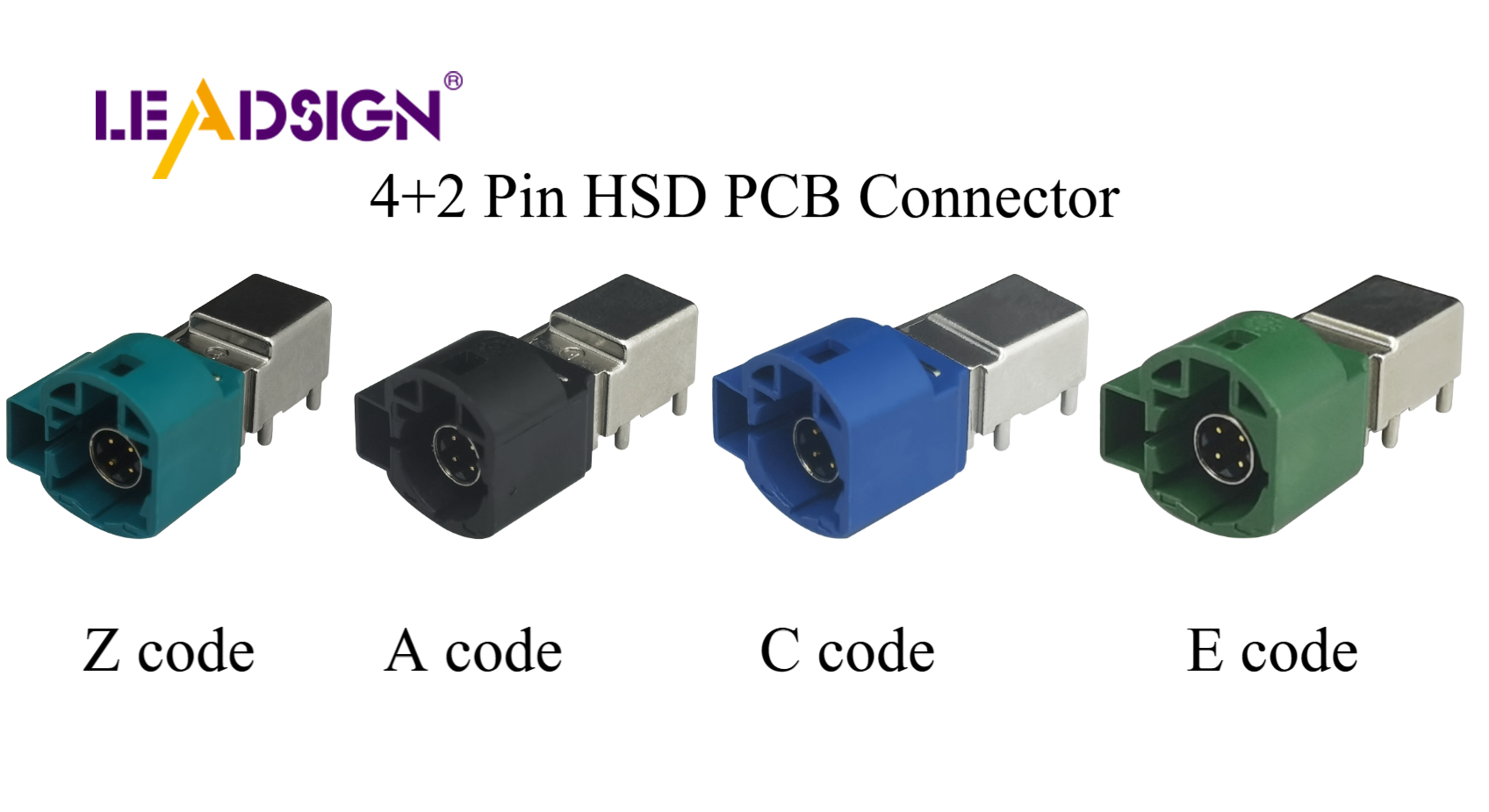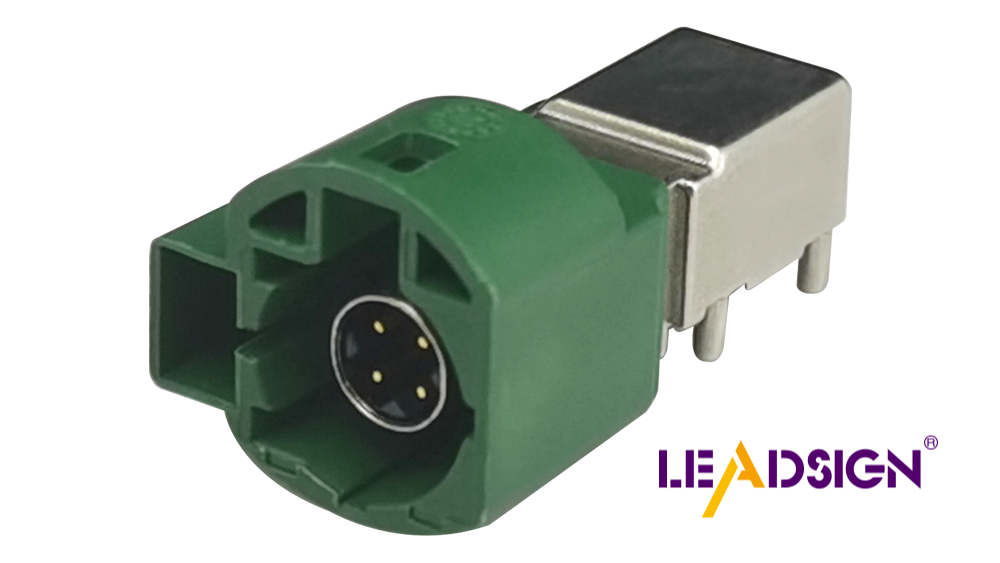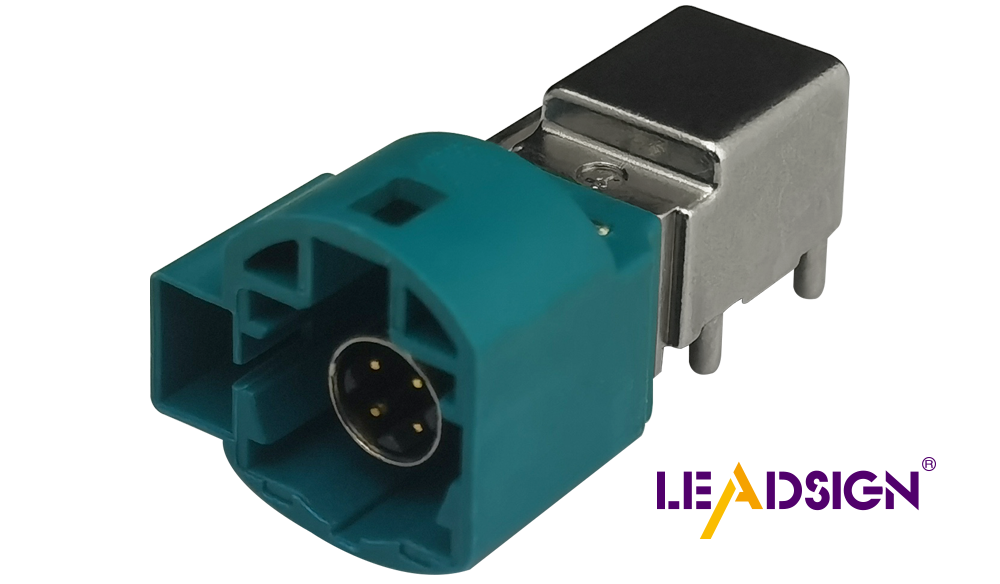Top Tips for Choosing Automotive Plugs and Connectors

Automotive plugs and connectors are crucial for safety and reliability. They ensure that electrical parts function properly in your vehicle. Poor-quality connectors can lead to electrical issues or even safety hazards, such as brake failures or other malfunctions. High-quality connectors enhance your car's dependability and help avoid costly repairs. Choosing the right automotive plugs and connectors safeguards your vehicle's electrical system, ensuring it runs smoothly for an extended period.
Key Takeaways
Understand your car's electrical system to choose connectors that match its voltage and current needs, ensuring reliable performance.
Opt for waterproof and heat-resistant connectors in vulnerable areas to protect against environmental damage and enhance durability.
Select the right connection method—crimping for quick fixes or soldering for long-lasting reliability—to suit your installation needs.
Choose connectors made from appropriate materials: metal for strength and power flow, and plastic for lightweight, rust-free options.
Ensure proper fit by selecting connectors that match your car's wiring specifications to avoid electrical issues.
Research trusted brands and read reviews to find high-quality connectors that meet your vehicle's requirements.
Consult with mechanics or electricians for expert advice on connector selection and installation to prevent future problems.
Knowing What You Need for Automotive Plugs and Connectors
Learning About Voltage and Current Needs
Picking connectors that fit your car's electrical system.
To choose the right connectors, know your car's electrical system. Each system needs specific voltage and current levels. For instance, engine control connectors must handle exact power levels to work well. Using the correct connector avoids electrical problems and keeps things running smoothly. Always check if the connector matches your car's wiring and power needs.
Making sure the connector handles the highest current needed.
Car systems like lights, windows, and sensors need different power levels. A connector must handle the highest current safely. If it can't, it might overheat or break. Choose connectors made for high power, especially for important systems like the engine. This keeps your car's electrical system safe and reliable.
Thinking About Environmental and Functional Needs
Using waterproof connectors in wet areas.
Water can harm plugs and connectors in your car. Near the engine or under the car, waterproof connectors are a must. They stop water from causing short circuits or rust. Sealed connectors also block dust, which helps them last longer in tough conditions.
Choosing heat-resistant connectors for hot areas.
Hot spots, like near the engine, can damage regular connectors. Heat-resistant ones can handle high temperatures without failing. These are great for engine systems where steady performance is key. Picking heat-resistant connectors makes your car's electrical parts last longer.
Checking data needs for systems like USB or Ethernet.
Modern cars have systems like USB ports or Ethernet connections. These need connectors that handle fast data transfer. For example, USB 3.0 connectors ensure smooth device communication. Dust-blocking features also protect these connectors for steady data flow. Always check your car's data needs before choosing connectors.
Checking Connection Methods for Car Electrical Connectors
Crimping or Soldering
Why crimping is fast and secure.
Crimping connects wires quickly and easily. It squeezes the connector onto the wire tightly. No heat is needed, so it’s safer to use. Crimped wires stay strong even with car vibrations. They also block moisture, stopping rust from forming. For fast and strong connections, crimping works best.
Why soldering lasts longer and stays reliable.
Soldering melts metal to join wires firmly. This makes a strong electrical connection that lasts a long time. It’s great for important car parts needing durability. Soldering takes more skill and heat to do right. Even so, it’s worth it for stable and long-lasting connections.
Picking the Best Connection Type
Push-fit connectors are easy to use.
Push-fit connectors are simple to install. Just push the wire in, no tools needed. They save time and are great for quick fixes. These connectors hold wires securely during car use. If you want fast and easy, pick push-fit connectors.
Screw-type connectors are strong and steady.
Screw-type connectors hold wires tightly with a screw. They don’t loosen, even with car vibrations. These connectors take longer to install but stay very secure. For important car systems, screw-type connectors are a solid choice.
Material and Durability Considerations for Automotive Wiring

Metal vs. Plastic Components
Benefits of metal connectors for strength and power flow.
Metal connectors are strong and carry electricity well. They move power efficiently, which is important for your car. These connectors handle high power without getting too hot. This makes them great for important parts like the engine. They are tough and last long under stress. For heavy-duty use, metal connectors are a reliable pick.
Advantages of plastic connectors being light and rust-free.
Plastic connectors are light and don’t rust. They help lower your car’s weight, improving performance. Unlike metal, they don’t corrode in wet areas. Modern plastic connectors are strong and handle medium power needs. For less important parts or wet places, plastic connectors work well and save money.
Rust and Corrosion Resistance
Why rust-proof materials matter in wet or salty places.
Rust can damage connectors and stop them from working. In wet or coastal areas, rust happens more often. Using rust-proof materials keeps connectors safe and working well. Stainless steel or coated metals fight rust even in tough conditions. Rust-proof connectors protect your car’s electrical system from breaking.
Coatings that make connectors last longer.
Special coatings help connectors stay strong for years. Zinc coating on metal stops rust from forming. Plastic connectors often have UV coatings to block sun damage. These coatings make connectors tougher and last longer. Always pick connectors with protective layers for better durability.
Size and Compatibility in Automotive Plugs and Connectors

Ensuring Proper Fit
Picking connectors that match your car's wiring.
Choosing the right size connector is very important. Every car has a unique wiring system. Connectors must fit the wire size and layout perfectly. For example, OEM Automotive Connectors are made to match specific car models. These connectors help power and signals flow smoothly. Always check your car's wiring size before choosing a connector.
Making sure connectors work with your car's system.
Your car needs connectors that fit its electrical parts well. Wrong connectors can cause power or signal problems. Car Electrical Connectors are made for single or multi-wire systems. They ensure everything works properly. Before buying, confirm the connectors fit your car's model to avoid issues.
Adapting to Tight Spaces
Small connectors for tight spaces in cars.
Modern cars often have small spaces for wiring. Regular connectors may not fit there. Small connectors are great for these tight spots. They work well without losing function. For example, microminiature connectors, like Molex ones, fit small spaces perfectly. These keep wires neat and organized in tricky areas.
Bendable connectors for easier wire setup.
Bendable connectors make wiring easier in your car. They can twist and turn around obstacles. This makes installation faster and simpler. These connectors are helpful in tight spaces with complex wiring. They also prevent damage during setup, helping your car's electrical parts last longer.
Planning to Buy and Install Automotive Electrical Connectors
Choosing Trusted Sellers
Finding well-known brands and makers.
When buying automotive electrical connectors, pick trusted brands. Companies like TE Connectivity, Amphenol, and Aptiv make strong, reliable connectors. Their products handle tough conditions like heat and moisture. These brands focus on car needs, making their connectors dependable for vehicles.
Make a list of sellers and compare their products. Check details like size, certifications, and if they fit your car. Good brands give clear information, helping you pick the right connector easily.
Checking reviews and asking experts for advice.
Reviews and expert tips help find good connectors. Online reviews show how connectors work in real life. Look for comments about strength, easy use, and performance. Positive reviews from other drivers can guide your choice.
Ask mechanics or car experts for advice too. They know which brands work best. Their experience helps you avoid bad products and save time.
Getting Help from Experts
Asking a mechanic or electrician for help.
Talk to a mechanic or electrician before buying connectors. They know how car electrical systems work. They can suggest connectors that fit your car’s needs. Experts check your car’s wiring and power needs to find the best options.
If fixing a wiring harness, expert help is key. Mechanics can recommend connectors that keep power flowing safely. Their advice prevents mistakes and future problems.
Installing connectors correctly to avoid problems.
Installing connectors the right way is very important. Bad installation can cause loose wires or damage. Professionals make sure connectors fit tightly and work well with your car.
Experts use special tools for perfect connections. They might crimp wires for quick fixes or solder for stronger bonds. With their help, your car’s electrical system will work smoothly and last longer.
Choosing the right car plugs and connectors is very important. Knowing what your car needs helps them work properly. Picking the best connection type makes them last longer. Using strong materials and the right size keeps them safe. This also helps them fit well in your car. Good choices protect your engine and improve how it works. Always pick good quality to keep your car running well.
FAQ
Why is picking the right car connector important?
Choosing the right connector helps your car work well. It stops electrical problems, improves performance, and makes parts last longer. Good connectors keep your car safe and reliable.
Why are OEM connectors needed for cars?
OEM connectors are made to fit your car perfectly. They match your car’s electrical parts and work smoothly. Using them lowers the chance of problems.
What are car connectors used for?
Car connectors have different jobs. Some send data quickly, others give power or block water and dust. Knowing their purpose helps you pick the right one.
How do connectors stay safe from water and dust?
Many connectors have seals to block water, dust, and heat. These seals make them last longer and work better in tough places.
How can I find connectors that fit my car?
Check your car’s wiring and system needs. Match the size, type, and material to your car. Your car manual or an expert can help you choose.
Why is planning before buying connectors important?
Planning helps you know what connectors to get. It gives time to compare brands, ask experts, and avoid delays. This makes installation easier.
What materials are best for car connectors?
Metal connectors are strong and carry power well. Plastic ones are light and don’t rust, good for wet areas or less power.
How can I make connectors last longer?
Pick rust-proof or coated connectors. Check them often for damage, especially in harsh spots. Install them properly to keep them working.
Can I put in connectors myself?
You can if you know your car’s electrical system and have tools. For tricky jobs, ask a mechanic to make sure it’s done right.
What should I think about when buying connectors?
Choose trusted brands with good reviews. Look for strong materials, seals, and a good fit for your car. Expert advice can help you decide.
See Also
Why FAKRA Connectors Matter in Automotive Technology
Enhancing Vehicle Data Transfer with Advanced Connectors
Significance of Fakra Connectors in Today's Vehicles

